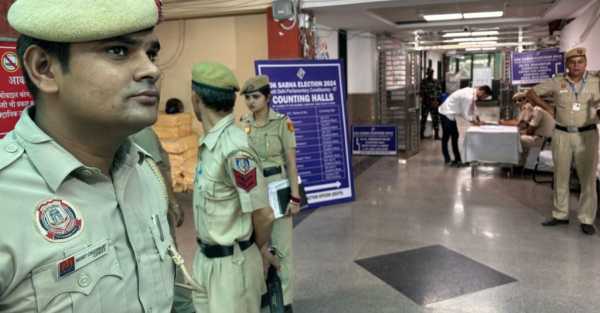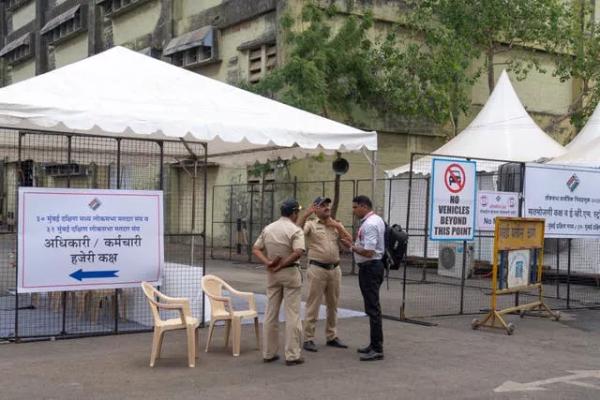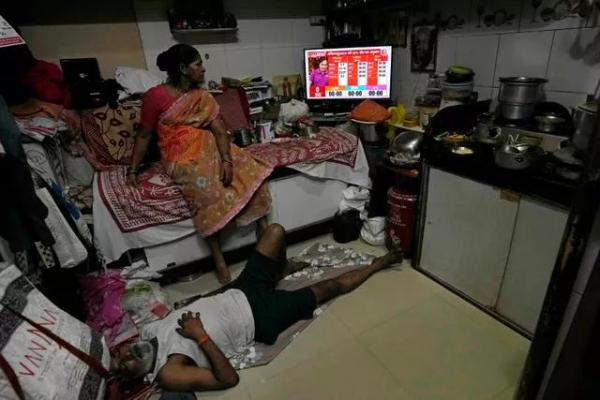
India has started counting more than 640 million votes in the world’s largest democratic exercise, which was widely expected to return prime minister Narendra Modi for a third term.
The six-week-long election was seen as a referendum on the 73-year-old, who would be the second Indian leader to retain power for a third term after Jawaharlal Nehru, the country’s first prime minister.
Exit polls on Saturday by major television channels projected a comfortable win for Mr Modi’s Hindu nationalist Bharatiya Janata Party (BJP) and its allies over a broad opposition alliance led by the Congress party and its main campaign leader, Rahul Gandhi.
According to official data, nearly 970 million people, more than 10% of the world’s population, were eligible to vote, with an average turnout of around 66% across the seven phases.

The tallying of votes at counting centres in each of the 543 constituencies where polls were held could continue into Tuesday evening before the Election Commission of India declares a final result.
Leads will start to emerge earlier, which will give an idea of where the results may be headed.
In his 10 years in power, Mr Modi has transformed India’s political landscape, his popularity outstripping that of his party and turning a parliamentary election into one that increasingly resembles a presidential-style campaign.
But a decade of his leadership has also left the country deeply divided. Critics and opponents say his Hindu-first politics have bred intolerance, hate speech and brazen attacks against the country’s minorities, especially Muslims, who comprise 14% of the population.
India’s economy, one of the fastest-growing, has become unequal under Mr Modi. While stock markets reach record highs and millionaires multiply, youth unemployment has soared, with only a small portion of Indians benefitting from the economic boom.

Mr Modi’s critics say the country’s democracy is faltering under his government, which has increasingly used strong-arm tactics to subdue political opponents, squeeze independent media, and quash dissent. The government has rejected such accusations and says democracy is flourishing.
As polls opened in mid-April, a confident BJP initially focused its campaign on “Modi’s guarantees”, highlighting the economic and welfare achievements his party says have reduced poverty.
His opposition, the India alliance led by the Congress party, has attacked Mr Modi over his Hindu nationalist politics.
The alliance hopes to benefit from the simmering economic discontent, and its campaign has rallied around issues of joblessness, inflation, and inequality.
But the broad alliance of more than a dozen political parties has been beset by ideological differences and defections, raising questions over their effectiveness.
The alliance has also claimed they have been unfairly targeted, pointing to a spree of raids, arrests and corruption investigations against their leaders by federal agencies they say are politically motivated. The government has denied this.
Another victory would cement Mr Modi as one of the country’s most popular and important leaders. It would follow the BJP’s thumping win in 2019, winning 303 out of 543 parliamentary seats.
Sourse: breakingnews.ie






